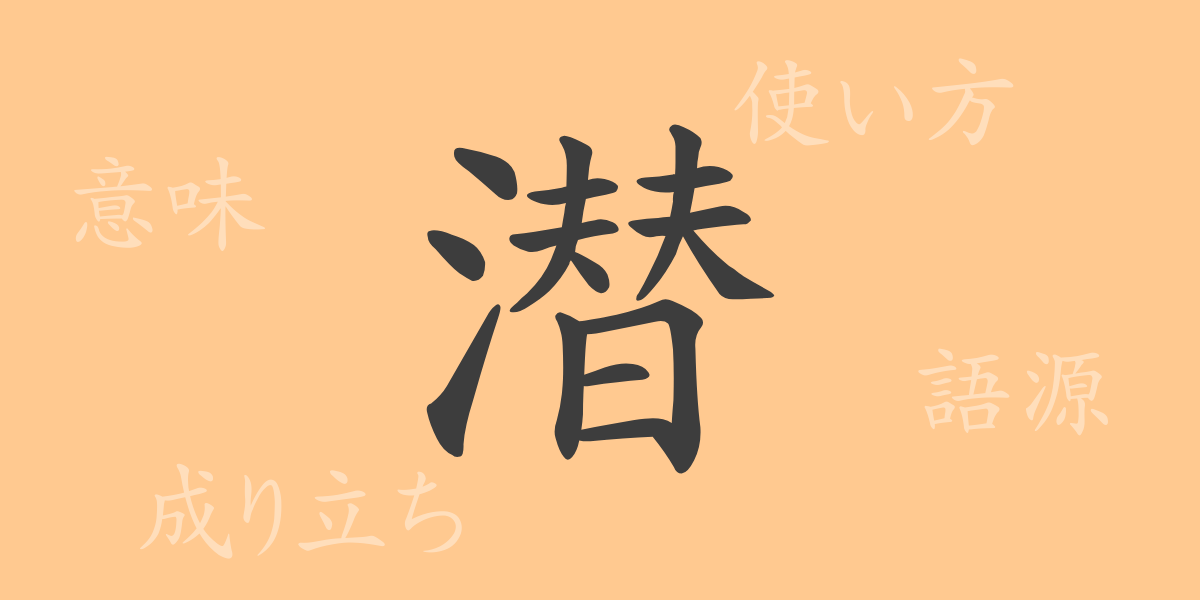In the Japanese language, numerous kanji characters exist, each with its unique history and meaning. This article focuses on the common kanji “潜” (せん), exploring its charm and role in Japanese. We delve into how the character for “潜”, which evokes the image of quietly accumulating strength beneath the surface, came to be and how it seamlessly integrates into our language.
Origins of 潜
The kanji “潜” originates from ancient China, composed of “氵” (さんずい) indicating water-related actions, and originally “木”, suggesting hiding, derived from “朁”. It evoked the image of wood submerged in water, leading to meanings associated with hiding or lying dormant. Over time, “潜” evolved to convey more abstract notions of concealing oneself or harboring inner qualities.
Meaning and Usage of 潜
“潜” carries meanings such as “to hide,” “to lurk,” and “to harbor within.” It is used broadly from physically concealing oneself to harboring emotions or thoughts internally. It is also applied to describe latent abilities or potentials.
Readings, Stroke Count, and Radical of 潜
The kanji “潜” is used in various contexts within the Japanese language.
- Readings: On’yomi (Sino-Japanese reading) is “セン”, Kun’yomi (native Japanese reading) includes “ひそ.む” and “もぐ.る”.
- Stroke Count: 15 strokes.
- Radical: The radical of “潜” is “さんずい” (氵), related to water.
Phrases, Idioms, and Proverbs Using 潜
There are numerous phrases and idioms that include “潜”. Here are a few examples:
- 潜在意識 (せんざいいしき): Subconscious mind, the awareness that exists beneath the surface.
- 潜水艦 (せんすいかん): Submarine, a vessel capable of underwater travel.
- 潜伏期間 (せんぷくきかん): Incubation period, the latent phase before the onset of a disease.
Conclusion on 潜
The kanji “潜” is employed to denote unseen elements or inner qualities, playing a significant role in expressing hidden strengths or emotions in Japanese. Used in various idioms and expressions, it showcases the depth of the language. “潜” continues to exert its latent influence in our linguistic life, much like its quiet presence beneath the surface.

























